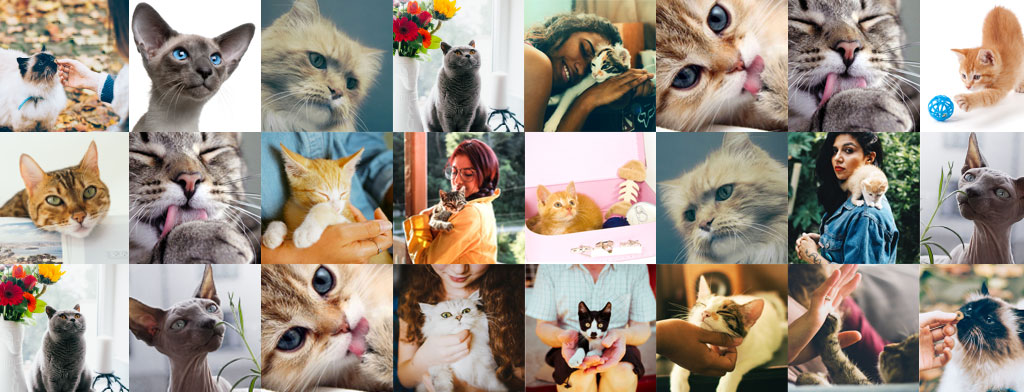Dental Care Cat

37 Kingsway
Cronulla NSW 2230 AU
02 9527 2604
cronullavetclinic@gmail.com

Dental care
70% of cats over 3 years of age already have gum disease.
Overview
Maintaining good dental health in cats is a lifelong commitment. From birth, kittens are born with no teeth, but by 6 weeks they have 26 baby teeth and by 6 months a full set of 30 adult teeth. During their first year of life, they can experience retained baby teeth, missing or extra teeth and early signs of dental disease.
Unfortunately, dental disease is the number one condition diagnosed in companion animals affecting over 50% of the cat population. This is no surprise with cat saliva containing up to 100 billion bacteria waiting to set up home on the cat’s teeth! The good news is that the most common form of the dental disease is preventable.
Top dental problems in cats:
- Periodontal disease (plaque and tartar buildup, infection)
- Oral resorptive lesions (holes in the surface of the tooth)
- Gum or tongue disease (gingivitis or stomatitis)
- Broken teeth
- Oral cancer
Signs
Common signs of a dental problem in cats:
- Decreased appetite
- Unwillingness to eat hard food
- Drooling
- Bad breath
- Plaque or tartar build up on teeth
- Swollen, red or bleeding gums
- Missing or broken teeth
- Weight loss
- Pawing at mouth
Bad breath
As with people, the occasional bad breath can occur after the ingestion of fish such as tuna. However, ongoing bad breath can indicate a problem.
Causes
Common causes of bad breath:
- Dental disease such as gingivitis
- Stomach problem
- Eating malodorous food such as garbage or faecal material
- Intestinal disease
- Metabolic disease
There are distinct types of bad breath that can indicate serious problems:
- Sweet breath may indicate Diabetes
- Urine-like breath may indicate liver or kidney disease
- Foul-smelling breath can indicate an intestinal problem
Management
To maintain your cat's dental health, you need to keep their teeth clean. Just like people, pets need a more professional veterinary dental procedure from time to time where we can thoroughly clean even under the gumline, and assess the dental health above and below the gumline, just like a human dentist does.
What happens during a veterinary dental procedure:
- General anaesthesia
- Oral examination
- Radiographs depending on assessment
- Teeth scaling to remove tartar and plaque
- Teeth polish
- Gum irrigation to remove debris and remaining polishing paste
- Application of anti-plaque system such as an oral sealant
- Assessment of abnormal gum pockets
- Tooth and gum procedures depending on findings
- Administration of pain relief and antibiotics where required
Home care
Taking care of your pet's teeth at home is extremely important in reducing plaque formation and the development of dental disease. Plaque control can be achieved through mechanical removals such as brushing teeth or using dental chews or chemical means using veterinary dental products. Nothing is 100% effective and therefore like us, your pet will still require regular dental check-ups and professional cleaning procedures.
Tooth brushing
Tooth brushing is considered the "gold standard" when performed at least once daily. It is the most effective and cheapest form of plaque prevention. Toothbrushes come in varying sizes and designs: a fine bristle soft toothbrush head on a standard straight brush versus a fingerbrush that slides over your finger can both be used. It's important only to proceed if your pet allows. Ask our friendly team for a handout to get your pet used to tooth brushing.
When using toothpaste, it is important to use a veterinary one as they are flavoured for pets, have low levels of fluoride and do not foam. Note: human toothpaste can cause stomach irritation if ingested, and our pets do not spit and rinse.
Always use a circular sweeping motion, pushing the brush away from the gumline.
Dental Chews
The natural chewing motion can help reduce plaque. Some dental treats and commercial dry foods also contain chemical plaque control agents.
Chew toys
It's important to choose chew toys that are made of durable rubber. Avoid toys that can be broken to pieces such as plastic or rubber toys as these can become lodged in the pet's stomach. Harder toys such as rope toys or even rocks and sticks can cause damage to the pet's teeth.
Tips
Tips that may help prevent dental disease:
- Daily rinsing and brushing of teeth
- Hard food as it is proven to leave fewer food particles on the teeth than soft food
- Dental chews such as soft rawhides
- Special foods such as veterinary prescription dental diets
- Annual veterinary dental checks to pick up and address early disease
- Veterinary dental cleaning as required
- Applying sealants: Usually applied professionally for the first application and then at home weekly by owner
- Control of diseases such as diabetes, thyroid disease, feline leukaemia (FeLV), and feline immunodeficiency disease (FIV)